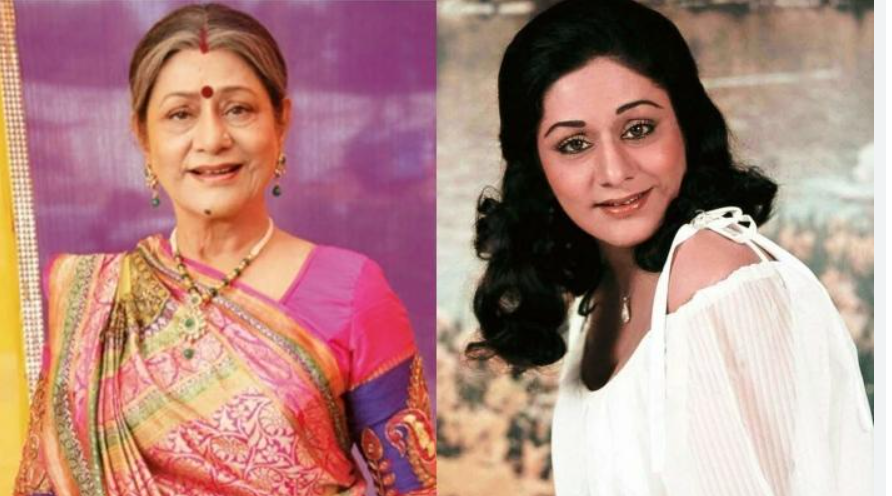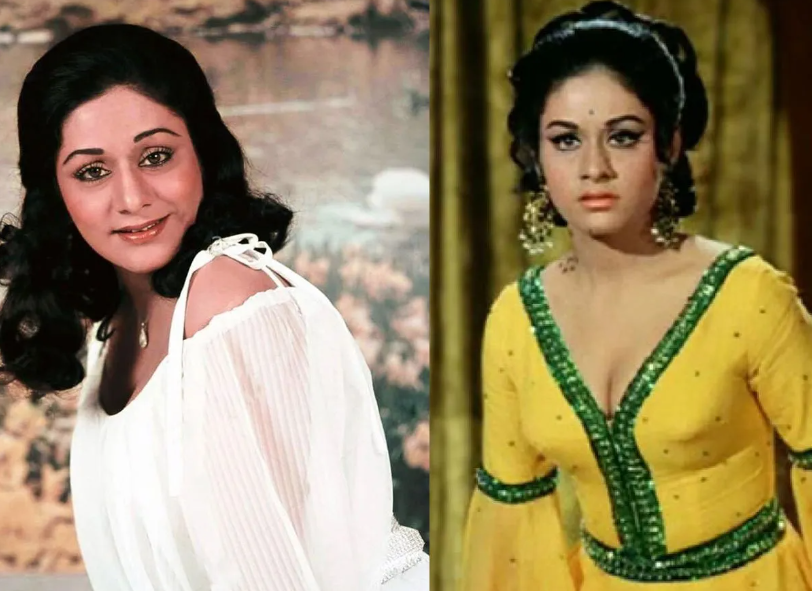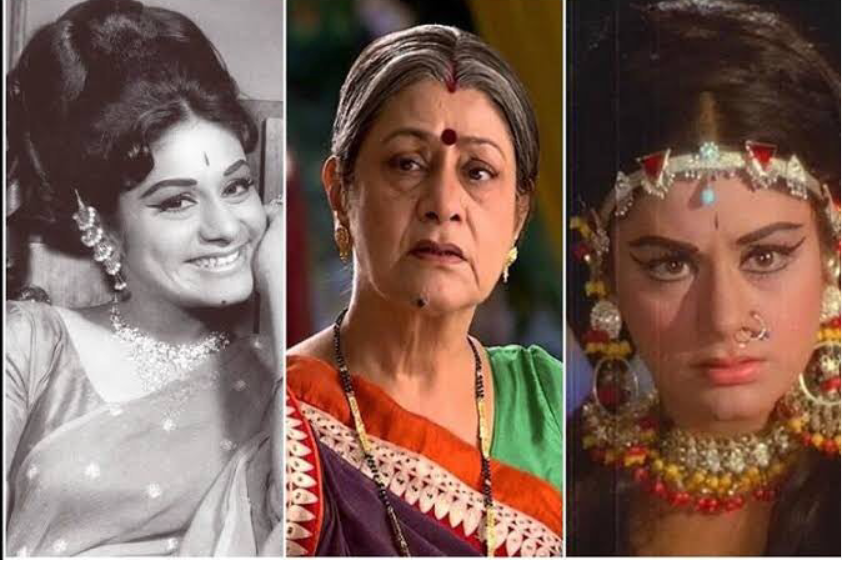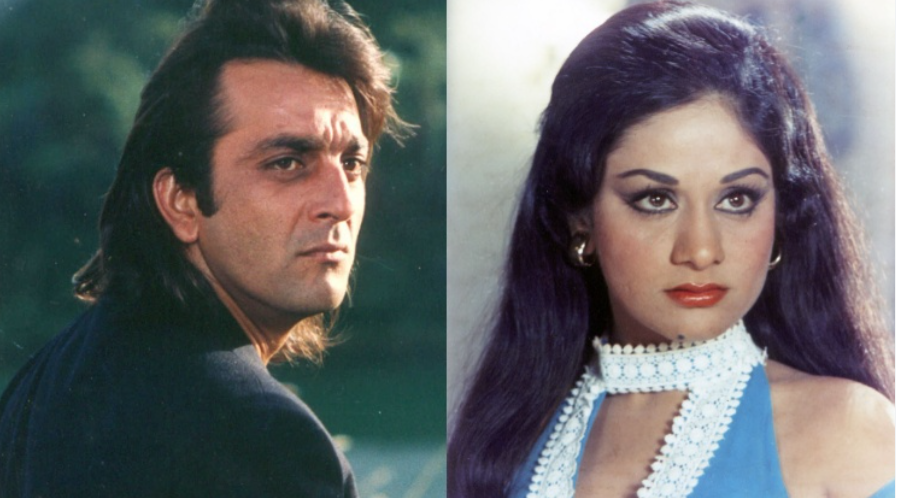Aruna Irani is one of the most accomplished and versatile actresses in the Indian film industry. With a career spanning over six decades, she has appeared in more than 500 films across various languages, including Hindi, Marathi, and Gujarati. Known for her diverse roles ranging from vampish characters to loving mothers, Aruna Irani has left an indelible mark on Indian cinema. This biography explores her early life, illustrious career, and her significant contributions to the world of entertainment.
Beginnings and Background
Aruna Irani was born on August 18, 1946, in Mumbai, Maharashtra, into a family with deep roots in the film industry. Her father, Faridun Irani, was a stage actor and film director, while her mother, Saguna, was an actress. Aruna was the eldest of eight siblings, and the family struggled financially. Given the circumstances, she was unable to continue her education beyond the sixth grade and had to take on responsibilities at an early age.
Aruna’s entry into films was more a matter of necessity than choice. To support her family, she began working as a child artist at the tender age of nine. Her first role was in the film “Gunga Jumna” (1961), where she played a small part as Vyjayanthimala’s younger sister. This marked the beginning of a long and successful journey in the film industry.
The Struggles and Breakthrough
Despite her early start, Aruna Irani faced significant challenges in establishing herself as a lead actress. During the 1960s and 1970s, the Indian film industry was dominated by established stars, and it was difficult for newcomers to make a mark. Aruna, however, was determined to succeed and took on any role that came her way, whether it was as a dancer, supporting actress, or vamp.
Her first major break came with the film “Anpadh” (1962), where she played a key supporting role. However, it was her performance as the coquettish village belle in “Caravan” (1971) that truly catapulted her to fame. The film was a massive hit, and her dance number “Chadhti Jawani” became iconic. This role showcased her talent as a dancer and actress, and she soon became one of the most sought-after actresses for supporting roles.

Establishing Herself as a Versatile Actress
Aruna Irani’s ability to adapt to different roles is one of her greatest strengths. Throughout her career, she has played a wide range of characters, from negative roles to motherly figures. In the 1970s and 1980s, she became known for her roles as a vamp in films like “Bobby” (1973), “Zanjeer” (1973), and “Roti Kapada Aur Makaan” (1974). Her portrayal of negative characters was so convincing that she became the quintessential ‘vamp’ of Bollywood during this period.
However, Aruna Irani was not limited to playing negative roles. She also excelled in positive and emotionally complex characters. Her performance as a loving and supportive mother in the film “Beta” (1992) won her the Filmfare Award for Best Supporting Actress. This role marked a significant shift in her career, as she transitioned from playing vampish roles to more mature and motherly characters. Her portrayal of the mother in “Beta” is still remembered as one of the finest performances of her career.

Contribution to Television
In addition to her work in films, Aruna Irani has made significant contributions to Indian television. She was one of the pioneers of the television industry in India and produced several successful TV serials. One of her most notable contributions was the popular TV show “Des Mein Niklla Hoga Chand” (2001-2005), where she played a central role as the matriarch of the family. The show was a huge success and earned her critical acclaim.
Aruna Irani also produced and acted in other successful television shows like “Mehndi Tere Naam Ki” and “Zameen Se Aasman Tak.” Her work in television further cemented her reputation as a versatile actress who could seamlessly transition between different mediums.

Personal Life
Aruna Irani has always been a private person, and not much is known about her personal life. She married film director Kuku Kohli, and the couple has kept their relationship away from the public eye. Despite her success, Aruna Irani has always remained humble and focused on her work, never letting fame get to her head.
Awards and Recognition
Over the years, Aruna Irani has received numerous awards and accolades for her contributions to Indian cinema. In addition to the Filmfare Award for Best Supporting Actress for “Beta,” she has also won several other awards for her performances in films like “Pet Pyaar Aur Paap” (1984) and “Pet Pyaar Aur Paap” (1985). In recognition of her contribution to Indian cinema, she was awarded the Filmfare Lifetime Achievement Award in 2012.
Aruna Irani’s journey in the film industry is a testament to her talent, determination, and versatility. She has successfully navigated the changing landscape of Indian cinema, adapting to new roles and challenges while continuing to deliver memorable performances.
Legacy
Aruna Irani’s legacy in Indian cinema is one of versatility and resilience. She has played a wide range of characters across different genres and has always brought a unique charm to her roles. Whether it was as a vamp, a mother, or a supporting actress, Aruna Irani has always left a lasting impression on the audience.
Her contributions to Indian cinema and television have inspired countless actors and actresses, and her work continues to be celebrated by audiences and critics alike. As she continues to be a part of the industry, Aruna Irani remains a beloved figure in Indian cinema, known for her dedication, professionalism, and immense talent.

Conclusion
Aruna Irani’s journey from a child artist to a veteran actress is nothing short of inspiring. She has faced numerous challenges but has always emerged stronger, thanks to her passion for acting and her unwavering commitment to her craft. Today, she stands as a true icon of Indian cinema, with a legacy that will continue to inspire generations to come.
